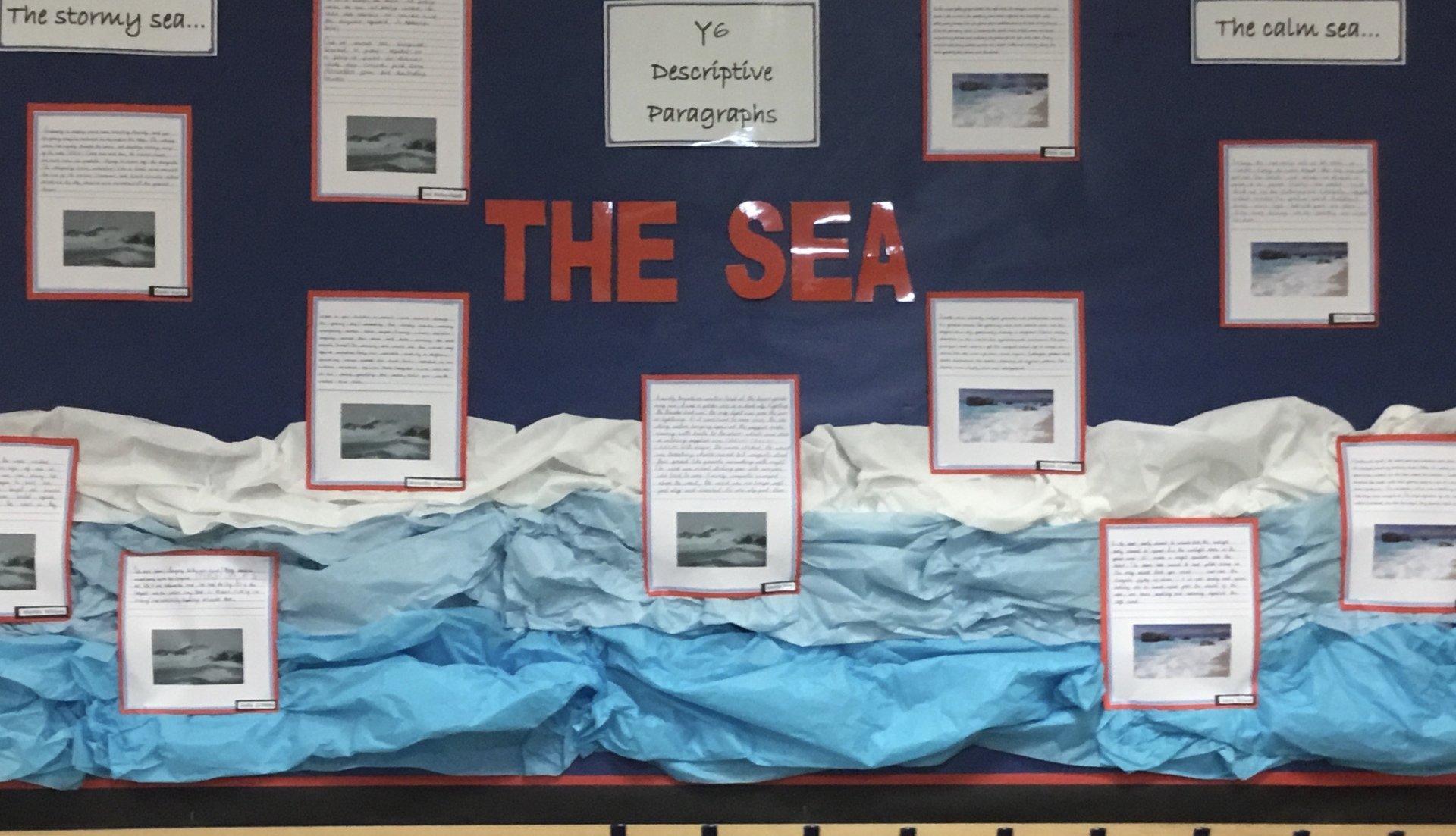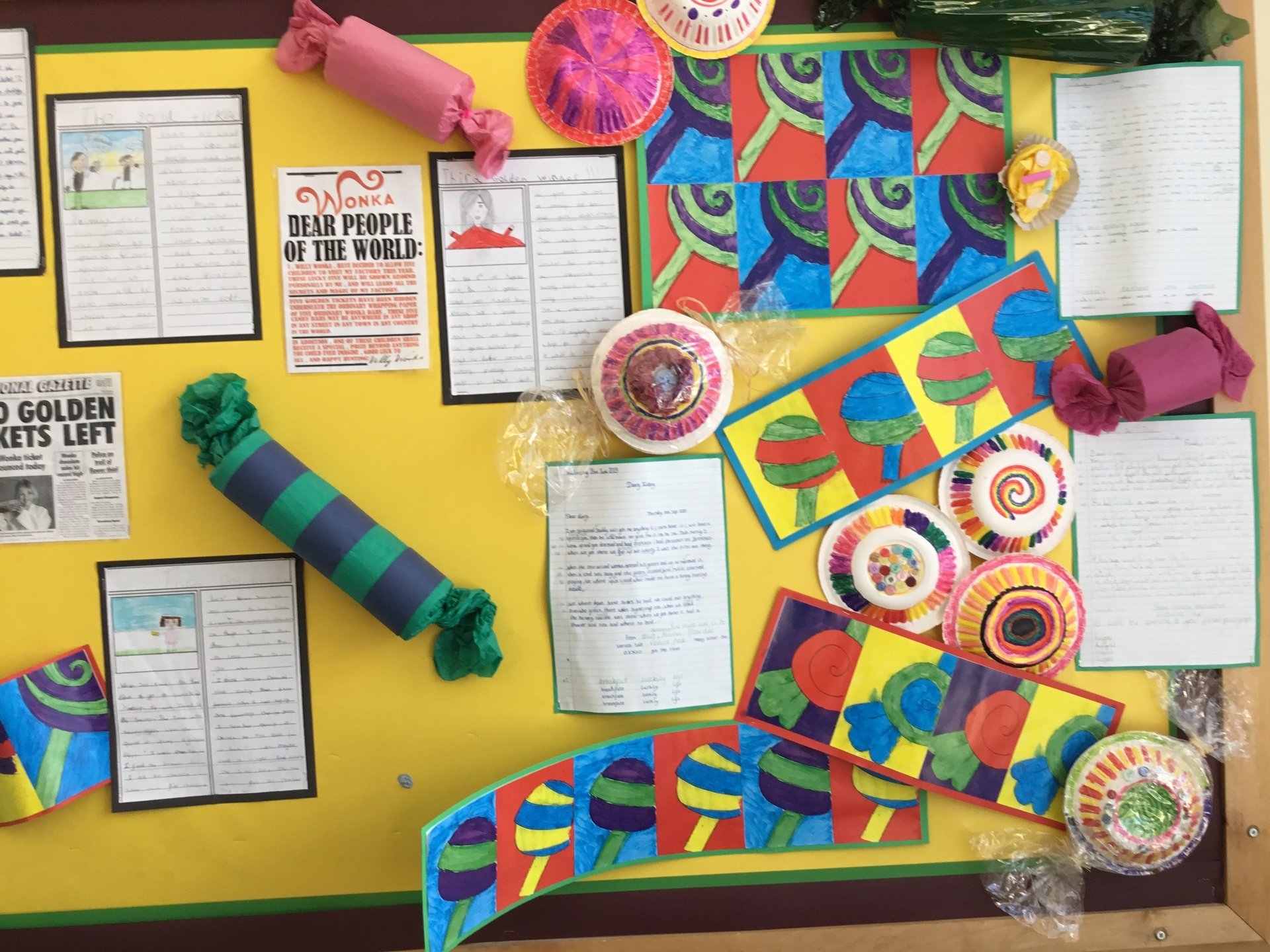English
English Intent:
At St. Gregory’s we create “life-long learners.” This begins with our English Curriculum. We want our pupils to become confident readers who read for pleasure. We strive that all our pupils have a love of language and are confident public speakers. Furthermore, we endeavour to develop the “writer’s voice “within every pupil across all abilities and experiences. We have worked hard to provide our children with rich and varied learning opportunities that help them to become confident and enthusiastic learners. We want our children to have a positive attitude towards communication and to be able to independently express their emotions and their ideas. Through our English Curriculum, we strive to teach the children how important their reading, writing, speaking and listening skills will be in the real world. Our curriculum develops key life skills which ensures, confidence, independence and resilience.
Pupil Voice
Reading gives us someplace to go when we have to stay where we are
We love writing at St Gregory's. I love to explore with my characters and use my imagination.
Implementation:
At St. Gregory’s, we want all of our pupils to be capable readers, writers, spellers and speakers, who can transfer their English skills to other curriculum subjects and who are prepared for the next steps in their education. Our English lessons develop pupils’ spoken language, reading, writing, grammar and vocabulary. There are planned cross-curricular activities which encourage pupils’ knowledge and understanding We teach our pupils to speak clearly, to convey their ideas fluently and confidently and to ask questions; the use of The English Speaking Board Materials enhance our curriculum. Our pupils are encouraged to read for pleasure and to read widely through our reading scheme and school library and our local library. Phonic awareness helps the development of reading by segmenting and blending sounds and the children will be heard reading regularly, both individually and in groups. Our guided reading sessions cover a wide variety of both fiction and non-fiction books and help to advance the children’s comprehension skills. Parents are given reading guidance and clear expectations about reading at home through our home school agreement. We develop writing skills so that our children have the stamina and ability to write at the highest standard possible for each individual. To support children in moving towards independent writing, we provide a wide range of activities including the use of film and imagery, music, ICT, modelled, shared and guided writing, peer assessment and discussion. We provide varied and exciting opportunities for writing for purpose and we encourage pupils to see themselves as authors and poets. We promote the importance of written work by providing a writing purpose and opportunities for children’s writing to be read aloud and listened to by an audience.
We have developed a range of extra activities which are used to promote English within the school including our year long, whole school Reading Week, World Book Day, weekly Reading , Writing and Handwriting certificates, Accelerated Reader, links with our local library and author workshops.
Link to the Primary Curriculum for English
Writing Skills Progression Documents
Whole School Writing Progression
Reading Skills Progression Document
Whole School Reading Progression
Examples of writing throughout school




PHONICS
All of our children have access to the teaching and learning of synthetic phonics daily. This year, we will start teaching phonics through a systematic synthetic programme called Rocket Phonics, which closely follows 'Letters and Sounds.'
We have been using the Rocket Phonics reading books in school for the last year and our pupils love the stories and colourful pictures in them.
Rocket phonics starts by teaching the basic alphabet sounds in a structured order and builds up to blending and reading full words and sentences. Phonics is embedded in continuous provision throughout EYFS through fun, engaging activities to inspire the children to use their phonic knowledge in independent writing and reading.
Additional phonics interventions run daily to close any gaps or misconceptions in the children’s phonic knowledge, these are regularly assessed and monitored to check their effectiveness against objectives. Each half term the children are assessed to check their knowledge of each phase and to identify gaps in learning, these assessments are then used to inform planning.
Supporting our new Phonics programme, is the Rising Stars reading website. All children from Nursery to Year 3 have access to online reading books that are matched to their level. Children have access to this at all times.

 Arbor
Arbor










